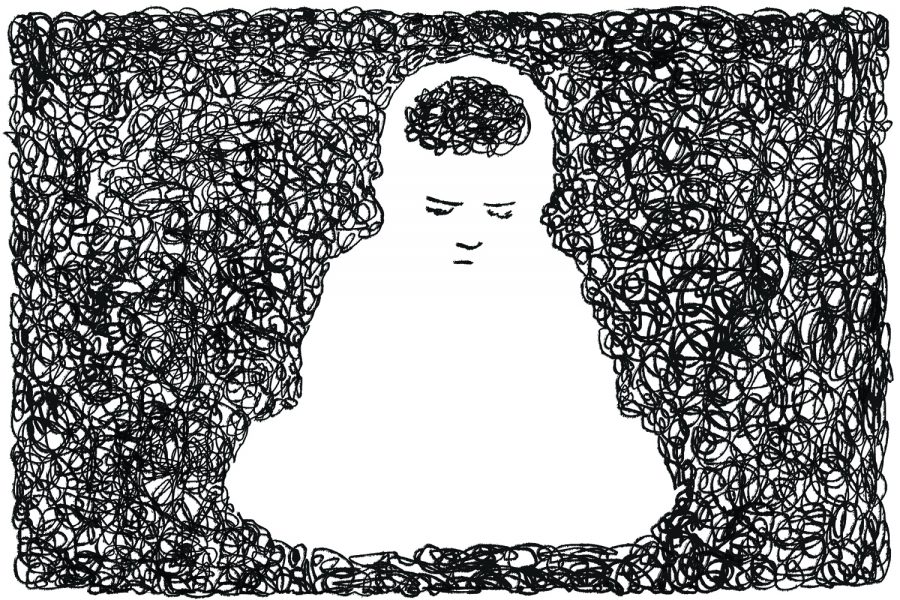Mental-health resources scarce at UI Stead Family Children’s Hospital, researchers say
Researchers have raised concern about a lack of resources at the University of Iowa Stead Family Children’s Hospital for child mental-health.
December 4, 2019
Some researchers are raising concern for what they say could be a disparity in resources that the University of Iowa Stead Family Children’s Hospital provides in support of mental-health services for children as the hospital works to offer more treatment options and services.
Experts say support for children’s mental health is critical as recent National Institute of Mental Health studies show a rising number of behavioral-disorder diagnoses among children. The Stead Family Children’s Hospital has felt the burden of the growing number of pediatric patients in its emergency room with mental-health concerns.
Psychiatry department head in the Carver College of Medicine Peggy Nopoulos said that a child seeking psychiatric treatment at the UI must go to an outdated child-psych unit — the UI’s was last updated in 1992.
Nopoulos said the donation from “Iowa Legend” Carson King was disproportionately allocated to other areas of the hospital, and excluded mental-health units.
Nopoulos said that there are a mere 15 beds in the pediatric mental health unit, however the beds are not located in the new pediatric hospital.
This disparity is despite the rate of death by suicide in individuals ages 14 to 19 being three times the death rate in cancer mortality, National Institute of Mental Health Director Joshua Gordon said. Gordon gave a presentation at the UI Nov. 19 on the opportunities and challenges relating to mental health.
“It’s astounding the disparity in resources when the [cancer] death rates are lower,” Gordon said. “…The fact is there are lots of other kids who need mental-health beds and aren’t getting them and spend days or weeks in ERs.”
Nopoulos said the ongoing stigma surrounding mental health factors into the lack of resources it receives for treatment.
Hanna Stevens, the UI Hospitals and Clinics Division of Child and Adolescent Psychiatry director, said the Children’s Hospital has various resources for behavioral and developmental disorders, including an outpatient clinic, inpatient unit, and opportunities for therapy.
Stevens said there’s been a rise in the amount of child mental-health cases over the last five years. A spike in the number of these cases may be due to family stress, economic uncertainty, addiction, and other factors that play into a child’s growth, she added.
Stevens said inpatients stay an average of five to seven days and typically receive therapy and medication. She also pointed to decreasing stigmatization of mental illnesses and to people’s increasing willingness to admit their desire to see a psychiatrist as factors that could explain the rise in mental-health cases.
Related: Momentum for children’s mental health system grows in Iowa
“I’ve talked to somebody about the fact that they’re planning to hurt themselves, thinking about not wanting to be alive,” Stevens said. “That situation would probably be presented to the emergency room, where the … doctors are pretty experienced with that kind of thing and they often will do an assessment themselves and then bring in one of the child-psychiatry teams to think about the best plan.”
Nopoulos said Iowa is one of the worst states for mental-health services — particularly for children.
“One of the things we have seen is a significant increase in the number of children coming to our emergency room,” Nopoulos said. “Whether it is for suicidal ideation or other behavioral issues, they may need a psychiatric bed, but because the state is so low on those, we have a hard time placing them …”
Iowa Gov. Kim Reynolds signed off on the state’s first comprehensive child’s mental-health system May 1. The bill, House File 690, requires Iowa’s mental-health regions to implement certain crisis response and treatment services across Iowa. It also established a statewide advisory board to advise the regions and collect data.
However, the regions, which fund themselves through property taxes, will not receive new funding from the state with the bill.
“With a children’s mental-health system, we’re starting from scratch. We have to put the system in place to start to [bring] down the waiting list, identify the additional gaps or barriers, and then we can address that moving forward,” Reynolds told the *The Daily Iowan* in January.
University of Iowa Hospitals and Clinics opened a crisis stabilization unit in October 2018 to accommodate the increasing number of psychiatric patients in the emergency room.
“Even though the emergency room staff and physicians are highly skilled, they are not necessarily trained in behavioral health. So when the patients have to wait for a bed to open, they are in the ER, but not getting any treatment — they are simply waiting; sometimes for days,” Nopoulos said.





















